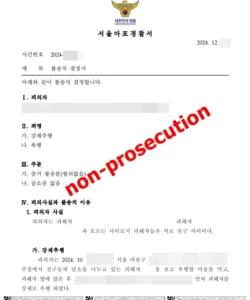1. Return of the Child, Child Abduction (Hague Convention)
Table of Contents
Hague Convention Child Abduction cases are different in nature from the cases of requesting child return based on the merits of the rights of custody. The Hague Convention Child Abduction case is a procedure in which a child under 16 years old is ordered to be returned to the country of the child’s habitual residence if he or she has been removed from there to another country or retained in a country different from the place of the child’s habitual residence by the child’s guardian, i.e., one of the parents, etc.
It is a procedure to ensure that the judgment on the issues pertaining to child custody (physical custody, visitation rights, child return, etc.) is made by the court of the country of the child’s habitual residence, which has international jurisdiction over the child’s case. The Hague Convention specifies that the decision concerning child return in a Hague Convention Child Abduction case cannot be taken as a determination on the merits of a custody case (Article 19).
2. When the Petition Seeking Return of the Child’s filed, the Court Decision on Child Custody case has to be suspended
Because of that, the Convention provides that once a Hague Convention Child Abduction case has been filed, it is not allowed to render a decision on the merits of rights of custody “until it has been determined that the child is not to be returned” (Article 16). According to Article 7 of the Act on the Implementation of the Hague Convention on the Civil Aspects of International Child Abduction (hereinafter the “Implementation Act”), unless the petition seeking return of the child “has been refused”, the court shall suspend judicial proceedings on the merits.
Article 3 of the Supreme Court Rules on the Implementation of the Hague Convention on the Civil Aspects of International Child Abduction follows Article 3 of the Implementation Act and reads that the competent court that has to suspend judicial proceedings, “means the court that is adjudicating the custody and modification thereof of the child that is the subject of the Child Abduction case, as well as designation of the parent with parental rights and modification thereof.” So, if there is a case on the merits of child custody that is being adjudicated in one of the Korean courts, and then a Hague Convention Child Abduction case gets filed with Seoul Family Court, it has to be suspended until the Child Abduction case is resolved.
Once the return of the child has been decided in the Hague Convention Child Abduction case, the Korean court loses international jurisdiction over the child’s case, so it has to dismiss the request in relation to the custody (Jaemoon Kwon, Ministry of Justice Research Service Report, p. 62.) On the other hand, if the Abduction Case gets dismissed, the Korean court can exercise international jurisdiction, so it may adjudicate the custody case (Articles 16 and 19 of the Hague Convention).



